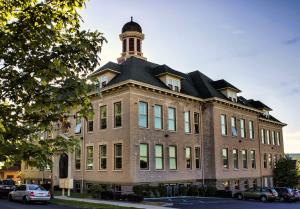
Background
True stories and ruminations from a long career with some surprise twists and turns.
|
As I left school on Friday, March 13, 2020, I was debating whether or not to travel to Richmond to cheer on our boys' basketball team slated to play for the state championship in our division. It soon became a moot point as the Virginia High School League, the governing body for activities and athletics in Virginia's public schools, announced the game had been cancelled due to COVID-19 concerns. Even though our team was named co-state-champion, it was somewhat like kissing your cousin -- they wanted to prove themselves on the court.
The next day, Governor Ralph Northam announced the closing of all schools effective Monday, March 16, 2020. By the end of the month, it became abundantly clear neither students nor staff, except essential staff, would be returning to school for the remainder of the 2019-2020 school term. The foremost question in my mind was not how were we going to teach our students, rather it was how were our students going to be fed as a large percentage of our students receive free or reduced lunch. For all too many of our students, school meals were the only meals they received each day. Many students went home on the weekends with a sustenance package to assist the family until Monday rolled back around. Were they now going to lose that?
Fortunately, the food issue was settled before the academic one was completed. Our food service department, in conjunction with our city, brought in the food to be prepared by the cafeteria staffs we already had in place. These meals were then boxed and loaded on our buses to be delivered to designated sites where families could pick up meals for their families. A decision was also made to feed our students during Spring Break, a time when students normally did not receive meals from the school, and during the summer. Additionally, many individuals and civic organizations stepped up to the plate to help meet the nutritional needs of our school families. It was very gratifying and humbling to watch people who had little of their own find a way to solicit food they could provide for others.
We still needed a plan to teach our children who are spread over the largest city in Virginia per land mass. The superintendent that was hired in October 2019 had deemed it necessary for all secondary students to have Chromebooks loaded with all their textbooks, academic apps, and Google drives as soon as possible. By February 1, 2020 approximately 89% of the students at my school had a Chromebook they could take back and forth from school to home.
When Governor Northam closed Virginia's schools, our superintendent charged our technology department to purchase more Chromebooks and one thousand "hot spots" (similar to a Wi-Fi provider) for those students who did not have internet service available out "in the boonies." A learning management system, Edgenuity, was also purchased, which allowed students in grades 6 -- 12 to work at their own pace; however there was a suggested pace in place for them so they would not dawdle. Even so, I often had to send encouraging messages to remind students they could cross this finish line if they held on just a bit longer.
There were cases where I had serious doubts about who was doing a particular student's work. It is rare for someone to leap from a flaming F to an overachieving A in just three weeks' time. On the other hand, those boring videos may have stimulated some of our students more than my co-teacher and I did. At any rate, most of our students completed their coursework and the academic year ended with hopes of our returning to school in person in September 2020.
One last comment. State testing was eliminated for the year -- and we all survived!



